70 products
- White Wine
- Garganega
- Organic, Vegan-Friendly, Volcanic
- Light Bodied
- 750ml
- 12.5% alc./vol
About the Winery
Azienda Agricola Tessari

The Tessari family have Soave in their blood. For three generations they have been extracting delectable wine from the well cared for vines of their Monteforte d’Alpone vineyards. With only a little over a hectare of Garganega grapes in the prestigious volcanic solis of Soave Classico, Antonio Tessari hand dug his cellar back in 1933 and started the legacy that continues today with his grandchildren: Germano, Antonio and Cornelia.
From vineyard to bottle, these three siblings oversee it all; with unwavering respect for tradition, quality and passion for the art of winemaking. The volcanic soils of the hillside are rich with basaltic rocks and clays, which guarantees the health of the plant and the promotes the mineral and floral aromas that are characteristic of the Garganega grape. Truly artisanal wine making at it’s best.
Press Reviews
Wine Align
91 points (2022) - David Lawrason
This shows the vivid yellow colour I expect from good Soave. It also shows the complex, detailed nose honeysuckle, lemon blossom, camomile and almost tropical peach/mango fruit. It is mid-weight, rich and viscous yet shows some enlivening freshness, spritz and tenderness at the same time. Slightly bitter and lemony on the finish. The length is excellent. Tasted January 2023.
90 points (2022) - Michael Godel
The latest volcanically driven garganega from the Tessari family is a child of a promising vintage full of sun, fun and support. The sky is the limit for just how well this will drink and please. It is in fact bottled salty and fruit crunchy deliciousness and why shouldn’t it be? Made simply with tradition in mind, basalt in pocket and all the modern facility made available. Citrus and nectarine, basil and Maldon salt. Lime all over the finish. Spot on. Drink 2023-2025. Tasted January 2023.
4 Stars (2022)- Sara d'Amato
Nervy and salty with a dash of elderflower and pear, this stylish Soave Classico is a favourite of restauranteurs. Richly textured with notes of apple and lemon zest, salt and lime. Quite chalky and dry, with a pleasant degree of roundness despite the moderate level of alcohol. Nicely balanced with a pleasant finish of good length. Drink now. Tasted January 2023.
- White Wine
- Pecorino
- Organic, Vegan-Friendly
- Dry
- Residual Sugar: 4 g/l
- Light Bodied
- 750ml
- 13% alc./vol
About the Winery
Azienda Agricola Jasci

Located on the hills that rise 250 meters above sea level from the Adriatic Sea just above the seaside resort town of Vasto in Abruzzo, here the Jasci family has been growing grapes and producing wine for three generations. Starting In the early 1960s, Pasquale and Maria turned the focus of their farm to producing estate wines.
In 1980, their son Giuseppe decided to convert the farm to organic, becoming one of the first ten wineries in all of Italy to be certified. Today led by grandson Donatello Jasci and his wife Piera, the family is the second largest single grower in all of the region. Donatello’s approach in the cellar is consistent with his farming: clean and simple. The wines see little or no oak and have a purity of flavor that is rare at the price. In addition to his duties at the winery, Donatello Jasci has served as President of the local Organic Growers’ Consortium.
Press Reviews
Wine Align
91 points (2021) - Michael Godel
This is not only high level but tremendous value pecorino with both drive and multifarious flavour compounds. It’s about as ripe and fruitful as it gets for the grape out of Abruzzo but there’s a great foil provided by energy, acidity and most of all salinity. Gives and gives of itself some more, lingers and finishes at wet stones, botanical tonic and a return of fruit once again. All around winner. Drink 2022-2024. Tasted October 2022.
91 points (2021) - David Lawrason
This is a lovely, fresh yet substantial and delicious white from the pecorino grape of Adriatic Italy that is taking the world by storm. It has intense, detailed aromas of lemon-grapefruit, fine fresh herbs (basil perhaps) and yellow pear fruit. It is medium bodied, fresh and richly fruited, with excellent length. A hint of licorice shows up on the finish. Great value. Tasted October 2022.
- White Wine
- Marsanne
- Organic, Sustainable, Vegan-Friendly
- Dry
- Full Bodied
- 750ml
- 13.20% alc./vol
About the Winery
Mas Carlot

Mas Carlot is situated in the south of the Rhône Valley, extending across 76 hectares of pebbly land southeast of Nîmes. Originally a 17th century farm, this beautiful estate was resurrected in the 1960's by the Blanc family—it is currently run Cyril Mares of the neighbouring and equally reputable property, Mas Bressades.
The appellation of Costières de Nîmes used to be considered part of eastern Languedoc but the climate, soil, topography and wine are far closer to those just over the river in the Southern Côtes du Rhône. It is now a region very much on the up and is widely recognized as a great source of excellent value wine.
Press Reviews
Wine Align
91 points - John Szabo, MS
Good volume and fruity depth here on this southern Rhône from Mas Carlot, richly flavoured, properly sapid, and saliva-inducing. I like the broad and rich palate, the long finish. White-fleshed orchard fruit leads and lingers. Top notch, and lovely. Tasted January 2024.
90 points - Megha Jandhyala
This golden southern Rhône blend is charmingly ripe and fleshy, even comforting, with notes of apples, tangerines, lychee, and toasted bread. The palate is mellifluous and pleasantly full, with a satin silk-like richness and juicy acids. The finish is gently warming, faintly bitter, and delicately textured. Tasted January 2024.
- White Wine
- Grüner Veltliner
- Biodynamic, Organic
- Dry
- 750ml
- 11.5% alc./vol
About the Winery
Matthias Hager
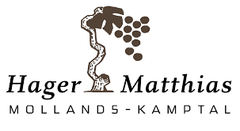
The Hager Matthias winery is located in the small village of Mollands in the Kamptal area of Lower Austria. Matthias took over the 12-hectare land and the family business at an early age. He aims to produce the best quality wine possible and to focus on being in balance with nature. The lands are cultivated according to biodynamic principles and are certified Demeter. Matthias has a vast knowledge about plants and insects, and about keeping the flora and fauna in harmony with the vines. Matthias Hager is one of the most experimental winemakers in the Kamptal region, Austria. He understood early how to work with different soil types from loess to clay. He established different product lines to highlight these differences: the blue one representing fresh, lively wines including Grüner Veltliner and Sauvignon Blanc; and the brown line gravitating towards more earthy, flavourful produce and the red line stands for no sulphites!
Press Reviews
Wine Align
92 points - Michael Godel
Juicy and extremely forthright for grüner veltliner with aromatic volume, a push of buzz, kinetic energy and acidity, finishing on a string with strong mocker flavours. Nothing subtle or understated here but more so a signature Austrian white that states its business, claims its territory and delivers waves of toothsome varietal style. Stands up to be noticed, and counted! Drink 2024-2027. Tasted October 2024.
91 points - David Lawrason
This is quite stylish, leaner and elegant - not as forward as many. There is also a more leesy note, with less obvious fruit. The honeyed, bready and peach notes remind me of pinot gris. It is light to medium bodied, quite firm, linear and very long on the finish. Some minerality here. Tasted October 2024
91 points - John Szabo, MS
Demeter-certified biodynamic, open and lively, energetic and vibrant, this is indeed one of the more lively grüner veltliners from the '23 vintage that I've tasted so far, also clean but with lees flavour lingering, supressing the exuberant citrus fruit. I love the balanced-crunchy acids and the high intensity and density flavours. Long, open and honest finish. Well done I have to say, ready to enjoy, but no rush. Tasted October 2024.
- White Wine
- Clairette, Grenache Blanc, Marsanne, Picpoul
- Organic, Vegan-Friendly
- Dry
- Full Bodied
- 750ml
- 13.50% alc./vol
About the Winery
Château de Montfaucon

Just across the Rhone river from the beautiful vineyards of Chateauneuf-du-Pape, the Lirac appellation extends itself on the low hills alongside the river. The history of Château de Montfaucon dates back to the 11th century when the castle's first tower was built. The castle's role in history was strategic; the Rhône River was the border between the French Kingdom and the Holy Roman German Empire. Montfaucon was one of many castles and fortresses along the Rhône River constructed to guard the border.
Rodolphe de Pins took over the family estate of Montfaucon in 1995 and subsequently rebuilt the winery and began practicing sustainable agriculture. He honed his winemaking skills in Barossa at Henschke and Vieux Telegraphe in Châteauneuf du Pape before returning to Lirac, so needless to say, his familiarity with the local varieties is well established.
Press Reviews
Wine Align
92 Points - David Lawrason
This is a blend of usual suspects among the white grapes of southern France with marsanne leading at 40% followed by clairette at 35%. It was fermented and aged in French oak barrels which accounts for the quite deep yellow gold colour. The nose is rather reserved but exotic and complex with waxy notes, apricot, orange peel, honey and wood spice. It is full bodied, almost thick, creamy and warming with 13.5% abv. Quite a mouthful, with some sense of wood tannin on the finish. Needs very rich savoury dishes. Excellent length. Tasted Nov 2025
- White Wine
- Pinot Grigio
- Organic, Vegan-Friendly
- Dry
- Light Bodied
- 750ml
- 12.5% alc./vol
About the Winery
Zuani

Zuani winery is located in the heart of Collio, Friuli, a hidden appellation between the Adriatic Sea and the Alps. Coming from a long tradition of winemakers in Croatia that goes back to the 19th century, Patrizia Felluga saw her dream come true when she acquired the estate and the vineyards in 2001. Today, her son and daughter have taken over the winery; producing exclusively white wines. Everything hinges on one exceptionally well exposed “cru”, or vineyard, on a gentle hillside where about eleven acres of vines and gardens surround the Zuani cellar.
The varietals planted are Tocai Friulano, Chardonnay, Pinot Grigio and Sauvignon, a carefully chosen range that produced the first vintage of Zuani Collio Bianco. The Zuani winery embodies the Felluga family winemaking heritage and expresses the fundamental unity of the traditional aspects of Friulian varieties with their more modern side.
Press Reviews
Robert Parker
90 points
Bright and simple, this wine delivers the goods. The Zuani 2023 Friuli Pinot Grigio Sodevo is made in stainless steel only with expressive fruit from marl and sandstone soils. Floral notes peel off first with orange blossom and yellow rose. There is a hint of sweetness to close, but the wine ends on a rather snappy, dry note. Production is 30,000 bottles.
Zuani, based in San Floriano del Collio, is run by Patrizia Felluga and her children, Antonio and Caterina. The winery is surrounded by soft hills, and the vineyard sites enjoy the best exposures. Typical Ponca soils with marl and sandstone give the wines freshness and sharp contours. This family-run estate was founded in 2001.
August 29th, 2024
WineAlign
92 points (2024) - David Lawrason
This is a classic, very tidy, firm and expressive pinot grigio with a fairly generous nose of ripe pear, linden blossom and wet stone - more complex than most grigios. It is light to medium bodied with firm almost crisp acidity, stony minerality and a lingering lemon-pear finish. Almost into riesling territory in the best way. The length is excellent. So much more here than than in the basic Italian pinot grigios. Tasted November 2025
90 points (2024) - John Szabo, MS
"Sodevo" is Friulan for "satisfied", a reference to wine's ability to satisfy thirst. And Zuani's 2024 pinot grigio completes the mission with a broad, ripe and fleshy but balanced, nicely concentrated example with plenty of ripe yellow orchard fruit flavours and creamy acids. Density and intensity are above the mean, and the finish lingers impressively. Enjoy over the next 2-4 years - this warm vintage does not require extended cellaring. Tasted November 2025.
- White Wine
- Olaszrizling, Pinot Gris, Riesling, Sauvignon Blanc
- Organic, Sustainable, Vegan-Friendly, Volcanic
- Light Bodied
- 750ml
- 12% alc./vol
About the Winery
Gilvesy Pincészet
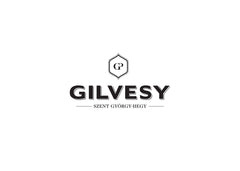
Hungarian expat Róbert Gilvesy moved back to his homeland from Canada, and began building the Gilvesy winemaking empire on the former Esterházy estate on Szent György Hill. Thanks to years of hard work, the Hegymagas-based facility now includes a modern building complex and about 13 hectares of vineyards, in addition to being the home of the family. The area is shaped by 6 million years old volcanoes, where indigenous and international varieties grow organically.
Robert’s absolute admiration for nature and the terroir translates into an immense respect for the environment. By farming using organic practices, the soils and the vines stay healthy. In the winery, by letting nature take its course without controlling the processes, and using local resources, such as Hungarian oak barrels, Gilvesy promotes and protects the Balaton region.
Press Reviews
Wine Align
91 points (2021) - Michael Godel
The blend in 2021 is olaszrizling (a.k.a. welschriesling), riesling and sauvignon blanc with pinot gris no longer involved. No doubt a botanical aspect ups the complexity game away and beyond the simple norms of white blends marked by citrus and stone fruit. They are in the mix but the herbal tonic and fine bitters elevate the cuvée to speak rightly and spritely for Balaton, the Szent György Hill and Robert Gilvesy’s oeuvre. This wine is an institution now and deserves plenty of attention. Drink 2023-2026. Tasted March 2023.
91 points (2021) - Megha Jandhyala
Situated near an ancient dormant volcano, Gilvesy grows native grape varieties organically and sustainably in volcanic soils. This blend of olaszrizling, pinot gris, riesling, and sauvignon blanc is subtly reductive and mineral, with notes of freshly cut-grass, juicy grapefruits and lemons, peaches, and crunchy pears. It feels fleshy and rounded, but refreshing on the palate, with a long, pleasantly grippy finish. I like the layers of flavours here and the succulent texture. This wine is ready to drink and vegan-friendly. Tasted March 2023.
90 points (2021) - John Szabo, MS
Gilvesy's 2021 Balatoni cuvee is the customary blend of welschriesling, riesling and sauvignon blanc, crafted in an appealingly reductive, grapefruit pith and peel-inflected style, tightly wound and bone dry, mineral and fresh. I love the saltiness on the palate and the succulent acids that draw additional sips. Crunchy, fresh, lively, drinking now or hold short term. Tasted March 2023.
- White Wine
- Sauvignon Blanc, Sauvignon Gris
- Organic, Vegan-Friendly
- Dry
- Medium Bodied
- 750ml
- 13% alc./vol
About the Winery
Réva
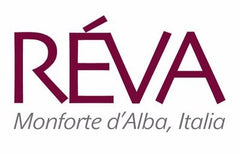
Réva is a winery based in Monforte D’Alba, within the Langhe area, in Piedmont, west northern Italy. Its aim is to bring the most brilliant young people of the area together, entrusting them with the task of expressing themselves in the most creative and professional way possible. This is Réva’s Wave, a dynamic team that represents the new Langhe generation, in constant communication with tradition, without the fear of reinterpreting it.
Today the vineyard sites which spread over 4 villages, Monforte D’Alba, Serralunga D’Alba, Novello and Barolo are all managed directly with the entire agronomic work done manually. Strong sustainable vineyards conduction, certified organic, they believe that their biggest challenge is not inventing anything but just define and express the beauty of the land where they live.
Behind every glass of wine there is an expression, expression of terroir, varietal, the varietal is for them everything, indigenous, they speak of the land and, last but not least, passion for what they do. Simply as that.
Press Reviews
Wine Align
92 points (2022) - Michael Godel
The name is Grey, representative three ways, of Réva’s Bianco label, the earth as its life giver and a sauvignon blanc meeting sauvignon gris growing from the Langhe “formation lequio.” In other words ancient Serravallian terroir come into being some 12 million years ago. Translates today as clay, limestone and fossil, adding up to and defined as grey marl. Just smells like wet stones, rich in mineral, as if after a rain. A place where ripeness means abundant and substantial fruit in cohorts with and defending the “sottosuolo” of elements below to do more than merely simulate but actually effect an authentic Langhe experience. Drink 2025-2030. Tasted May 2025
91 points (2022) - David Lawrason
This is a blend of sauvignon blanc and sauvignon gris - a highly unusual wine for the Langhe region, but a specialty of the youthfully re-imagined Reva estate in Montforte. It is an impressive, full flavoured, generous and well balanced wine with lifted aromas of guava/lychee, lemon and fresh herbs. It is very bright with lively acidity, considerable warmth and juicy, tart-edged finish. The length is excellent. A bit aggressive in the end so chill well. Tasted May 2025
91 points (2022) - John Szabo, MS
Réva's Langhe Bianco "Grey" is composed of 70% Sauvignon Gris and 30% Sauvignon Blanc, related but considered separate varieties, the former less effusively aromatic than the blanc version. It pours a pale-medium yellow gold colour, and offers maturing, bruised pineapple and binned apple aromatics in an advancing style, purposely no doubt considering Réva's commitment to natural winemaking and low intervention. It's also notably herbal, like dried mint or cold mint tea, fresh celery and other non-fruity components on a fairly rich and full-bodied frame with palpable extract - tannins - that provide some grip. Despite the advancing flavours, I'd recommend another year or two in the cellar for the palate to smooth out, and since it's not about the fruit in any case, those flavours will continue to develop in the savoury spectrum. Length is very good. Tasted May 2025.
- White Wine
- Arneis
- Biodynamic, Natural, Organic, Vegan-Friendly
- Dry
- Medium Bodied
- 750ml
- 13.5% alc./vol
About the Winery
Punset

While the vineyards that form Punset have been farmed by the Marcarino family for generations, it is truly thanks to Marina and her incredible energy that the estate is how it is nowadays. In the 1980s, she decided to pursue organic farming – a demanding choice that was rewarded by becoming the first estate to receive the organic certification in Italy. Her passion for the soil and the environment led her to embrace biodynamics and the agronomic philosophy of Manasobu Fukuoka. From one of the healthiest vineyards in Italy, Marina crafts wines that brim with life, energy, and pure terroir.
Known for the very first certified organic Barbaresco of Italy, Marina continues to show the world that you can preserve tradition and think of the future simultaneously.
Press Reviews
Wine Align
90 points (2018) - Michael Godel
Next stage complexity emerges from this extraordinarily ulterior half and half white from Marina Macarino’s Domaine Punset in Barbaresco. Get your disco dancing shoes on with a glass of this sweet nectar, dry as the Neive hills and ready to rock.
Ne’? is the “Piedmontese” way of ending a sentence, like ‘eh in Canada. A 50-50 arneis and favortita mix, salt missive over fruit and extremely fresh. The aperitíf white that connects dialectal territory with those in the diaspora that want a taste.
- White Wine
- Chardonnay
- Organic
- Dry
- Medium Bodied
- 750ml
- 13% alc./vol
About the Winery
Domaine du Château de La Chaize
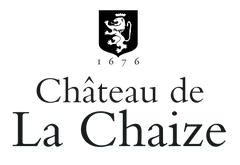
Château de La Chaize is among the oldest, most historic estates in Burgundy’s Beaujolais region. Cared for by the same family for nearly three and a half centuries, the estate has been passed on to new owners, the Gruy family, who are equally committed to managing the estate with the utmost care, while implementing an ambitious environmental plan. Among the many initiatives is the conversion of all vineyards to organic farming, the adoption of precision viticulture, reducing carbon their carbon footprint, and recycling every by-product from viti- and vinicultural activity, to achieve zero waste.
Founded in 1670 by the seneschal of Lyon François de la Chaize d’Aix, the main Château de la Chaize building and gardens were completed by Jules-Hardouin Mansart and André le Nôtre, respectively architect and gardener of the Château de Versailles. Château de la Chaize is among the oldest, most historic estates in Burgundy’s Beaujolais region. Boasting over 250 acres of vineyards, it is also one of the largest. It is today considered one of the most innovative estates in Burgundy. Among its forward- thinking practices is the adoption of eco-friendly farming techniques, commonly referred to as Agriculture Raisonnée. Chemical treatments have been reduced to a strict minimum, for example, and the growing of grass between rows has been re-introduced to enrich the soil and reduce erosion.
Press Reviews
Wine Enthusiast
90 points
This Beaujolais estate also has vines in Pouilly-Fuissé to the north. The wine has good minerality as well as ripe apple and spice. Lightly wood aged, it is a rich, structured and fruity. Drink the wine from late 2020. - Roger Voss
- White Wine
- Grechetto
- Organic
- Dry
- 750ml
About the Winery
Cantina Cenci
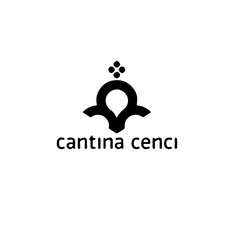
The Cenci Family has been dedicated to viticulture for over four generations, continuing to cultivate the vine with deep respect for the traditions and unique characteristics of the land once owned by the Olivetan monks. In the early 1950s, Mario—an enlightened and forward-thinking agricultural expert, and grandfather of Giovanni—selected clones of Grechetto, Sangiovese, and Malvasia from vines once cultivated by the Olivetan monks and traditionally grown intertwined with mulberry trees. He planted the first vineyards of the estate, and the wines made from those grapes were of such outstanding quality that he secured a long-term contract to supply Grechetto and Sangiovese in traditional flasks to the restaurant of a prestigious hotel in Perugia.
In 2012, following two years of renovation of the farmhouse, the new winery was inaugurated under the guidance of Mario Cenci, architect and brother of Giovanni. Thanks to cutting-edge equipment and winemaking techniques—combined with deep respect for tradition and the passionate leadership of Giovanni Cenci (viticulturist, enologist, food biotechnologist, and sommelier)—Cantina Cenci today produces wines appreciated by a niche audience of expert consumers.
The perfect balance between tradition and innovation has shaped a strong and distinctive brand identity.





























